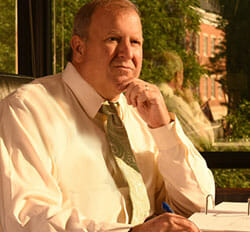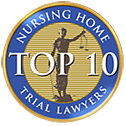Technology and Independent Living
May 17th, 2016 by Attorney Roger Weinberg
Technology has changed virtually every aspect of our lives. It can also change how elders and those with severe disabilities are cared for. WebMD has a number of suggestions for caregivers of those with cognitive issues (including dementia and Parkinson’s disease), and many of these ideas could be helpful if you need to care for someone who can’t care for themselves, regardless of the reason.
Assistive Devices
Low tech devices can be a big help for those with physical limitations. A Reacher (a pole with a claw on the end) can help get objects off shelves. Can openers and other kitchen devices with large, easy-to-grip handles can make food preparation a lot easier.
Emergency Alert Devices
They generally come in two parts: the base unit (connecting to a phone line) and a bracelet or pendant with an alarm button. The service is paid through a monthly subscription. Pressing the button alerts the company’s operator, who can notify local authorities and family members.
ID Jewelry
These can be very important if someone with cognitive or communication problems wanders off and becomes lost. Bracelets and pendants can have the person’s name, contact info and health information. More sophisticated models have a USB device with medical information that can be plugged into a computer.
GPS Tracking Devices
These devices can be used for someone with cognitive problems who may wander off, get lost and get into trouble. They can come in the form of pendants, bracelets and watches and use a smartphone app so you can track the person’s location.
Sensors
Motion detectors can be installed on doors leading to the outside, which can sound an alarm when opened so you’ll know if a loved one is going out. There are even pressure sensors that can be placed under a mattress so when the person gets out of bed you’ll be alerted.
Cameras
Cameras can be set up inside a home and monitored over the internet. This can be intrusive but may be right for you if you truly need to keep an eye on a loved one without being there. If you’ve hired someone to care for your family member, you can also watch that person if you fear neglect, abuse or theft is being committed.
Electronic Pillboxes
They automatically dispense medicines at given times. More sophisticated models can warn a caregiver that a pill has been missed.
Software and Computers
If your loved one has sight issues and/or problems using a keyboard, there are two things that can keep the person connected to you and the internet. Dragon Naturally Speaking voice recognition software can allow someone to use a computer, including composing emails and social media content, without having to use a keyboard. The Amazon Echo device allows internet connection by voice command, without a keyboard or monitor. Questions might be answered, requested music played, and news updates could be accessed. With added apps, lights and a home’s thermostat can be controlled by your voice.
Caring for someone who is elderly or disabled can be very stressful and exhausting, but with some help it can be made easier and more manageable. If you or a loved one has suffered neglect or abuse at a Maryland nursing home or assisted living facility, we can help you address the situation and hold those responsible accountable for their actions. At the Law Offices of Roger S. Weinberg, you’ll find compassionate support and experienced advocates to help your family through the tough times. Call 410-825-3161 today to schedule a free consultation.


 Roger Weinberg is a skilled and experienced attorney who has pioneered the legal field of representing Nursing Home, Assisted Living, and Developmental Disability victims and their families who have experienced abuse, neglect and wrongful death. He is a leader in this field and teaches other lawyers, students and medical personnel about the laws impacting such cases. [
Roger Weinberg is a skilled and experienced attorney who has pioneered the legal field of representing Nursing Home, Assisted Living, and Developmental Disability victims and their families who have experienced abuse, neglect and wrongful death. He is a leader in this field and teaches other lawyers, students and medical personnel about the laws impacting such cases. [ 



